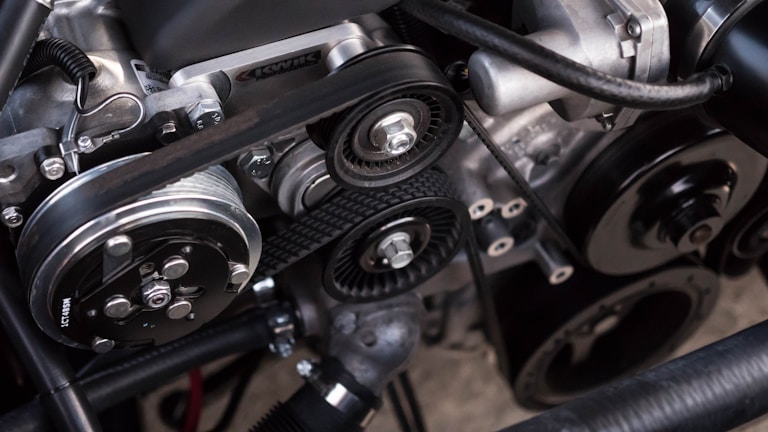
Understanding Vehicle Warranty Rights in Washington State
Washington State provides strong consumer protections for vehicle warranty claims through a combination of state consumer protection laws, the Motor Vehicle Warranty Act, and federal regulations. When manufacturers fail to honor warranty obligations, Washington consumers have significant legal rights and remedies available to ensure they receive the warranty coverage they paid for.
Vehicle warranties represent legally binding promises from manufacturers about product quality and performance. When these promises are broken through improper claim denials, inadequate repairs, or unreasonable delays, Washington law provides comprehensive protections to help consumers obtain appropriate relief.
Types of Vehicle Warranties in Washington
Washington recognizes several forms of warranty protection for vehicle buyers:
Express Written Warranties: Specific written promises from manufacturers covering particular vehicle systems, components, or overall performance for defined time periods or mileage limits. These warranties create legally binding obligations that must be fulfilled exactly as written.
Implied Warranty of Merchantability: Washington law automatically applies this warranty to every vehicle sale, ensuring that vehicles meet reasonable consumer expectations for quality, performance, and reliability appropriate for their type and price.
Implied Warranty of Fitness for Particular Purpose: When dealers recommend specific vehicles for particular uses, this warranty ensures the vehicles will be suitable for those intended purposes.
Extended Warranties and Service Contracts: Additional coverage purchased separately or included in vehicle financing. These contracts must be honored according to their terms and cannot contain unconscionable provisions that unfairly disadvantage consumers.
Federal Magnuson-Moss Act Protections: Federal warranty law that supplements Washington state protections, providing additional consumer rights and enforcement mechanisms.
Common Warranty Claim Disputes
Washington consumers frequently encounter warranty problems that may require legal intervention:
Wrongful Claim Denials: Manufacturers improperly deny legitimate warranty claims by arguing problems aren't covered, result from consumer misuse, or don't meet coverage standards without conducting proper investigations.
Inadequate Repair Quality: Warranty work performed using substandard parts, improper procedures, or insufficient diagnostic methods that fail to resolve underlying problems or create additional issues.
Unreasonable Repair Delays: Manufacturers use various delay tactics, including claims of parts unavailability, excessive approval requirements, or unreasonable documentation demands to postpone necessary repairs.
Coverage Interpretation Disputes: Disagreements about warranty coverage scope, whether specific problems qualify as manufacturing defects, or whether warranty conditions have been properly satisfied.
Dealer-Manufacturer Responsibility Conflicts: Situations where dealers and manufacturers dispute responsibility for warranty obligations, leaving consumers without clear recourse for resolution.
Washington's Warranty Performance Standards
Washington law establishes high standards for warranty performance that protect consumers:
Good Faith Performance: All warranty obligations must be performed in good faith, meaning manufacturers cannot use technicalities, unreasonable interpretations, or bad faith tactics to avoid their responsibilities.
Reasonable Repair Timeframes: Warranty repairs must be completed within reasonable time periods appropriate for the specific problems and repair complexity. Indefinite delays or unreasonable postponements violate warranty obligations.
Effective Problem Resolution: Warranty repairs must actually resolve covered problems using proper methods and quality materials. Band-aid solutions or repeated inadequate repair attempts don't satisfy warranty requirements.
No-Cost Warranty Service: All covered warranty repairs must be provided at no charge to consumers, including diagnosis, parts, labor, and ancillary services necessary for complete repair.
Clear Consumer Communication: Manufacturers and dealers must communicate clearly about warranty coverage, claim procedures, repair progress, and any applicable limitations or conditions.
Legal Remedies for Warranty Violations
When warranty obligations are violated, Washington provides comprehensive remedies:
Proper Repair Completion: Manufacturers must complete warranty repairs correctly using appropriate methods and quality components. Failed repairs require additional attempts at no cost to consumers.
Vehicle Replacement or Refunds: In cases where warranty repairs cannot successfully resolve problems after reasonable attempts, consumers may be entitled to vehicle replacement or full purchase price refunds.
Consequential and Incidental Damages: Washington law allows recovery of additional costs caused by warranty violations, including rental vehicle expenses, towing costs, transportation, lodging, meals, lost wages, and other reasonable expenses.
Attorney's Fees and Costs: In successful warranty violation cases, manufacturers may be required to pay reasonable attorney's fees and litigation costs, making it financially feasible for consumers to pursue legitimate claims.
Punitive Relief: When manufacturers engage in particularly egregious conduct, Washington law may provide for punitive damages designed to punish wrongful behavior and deter similar violations.
The Consumer Protection Act Connection
Washington's Consumer Protection Act (CPA) provides additional protections for warranty claim violations:
Unfair Business Practices: Improper warranty claim handling can constitute unfair or deceptive business practices under the CPA, providing additional legal theories for relief.
Treble Damages: The CPA allows for treble damages in cases involving willful violations of consumer protection standards, significantly increasing potential recovery amounts.
Attorney's Fee Provisions: The CPA provides for attorney's fee awards in successful consumer protection cases, complementing warranty law fee provisions.
Class Action Possibilities: Systematic warranty violations affecting multiple consumers may support class action lawsuits under the CPA, providing efficient resolution for widespread problems.
Documentation and Evidence Requirements
Building strong warranty claims requires careful attention to documentation:
Complete Purchase Records: Maintain all documents related to vehicle purchase, financing, warranty terms, and any representations made about warranty coverage.
Detailed Problem Documentation: Create thorough records of when problems occur, how they affect vehicle operation, any safety concerns, and the impact on vehicle use or value.
Repair Attempt Records: Document every repair attempt with dates, descriptions of work performed, parts replaced, time in service, and outcomes of repair efforts.
Communication Records: Keep copies of all written communications, emails, and detailed notes from telephone conversations with dealers, manufacturers, or their representatives.
Expense Documentation: Save receipts and records for all costs incurred due to warranty problems, including rental cars, towing, alternative transportation, and other related expenses.
Professional Legal Representation Benefits
Warranty disputes with major manufacturers involve complex legal and technical issues:
Washington Law Expertise: Experienced warranty attorneys understand Washington's specific consumer protection laws, warranty requirements, and how state and federal laws interact.
Manufacturer Strategy Knowledge: Qualified lawyers know common manufacturer tactics for avoiding warranty obligations and can develop effective strategies to protect consumer interests.
Proper Case Development: Attorneys understand what evidence is needed to prove warranty violations and can help ensure cases are properly documented and presented.
Negotiation and Litigation Skills: Most warranty disputes resolve through negotiation, but attorneys can effectively advocate for fair settlements while being prepared for litigation when necessary.
Protecting Your Washington Warranty Rights
If you're experiencing warranty problems with your vehicle in Washington:
Don't accept improper warranty denials without investigation. Many initial denials are made hoping consumers won't pursue their legal rights.
Maintain comprehensive records of all warranty-related problems, communications, and repair attempts from the beginning. Strong documentation is essential for successful warranty claims.
Follow manufacturer warranty procedures while ensuring these procedures are reasonable and comply with Washington consumer protection standards.
Seek experienced legal advice promptly if warranty claims are improperly denied or repairs don't resolve covered problems. Washington provides strong consumer protections, but these rights must be properly asserted within required timeframes.
Act quickly when warranty problems develop. Delays in addressing warranty issues can sometimes give manufacturers grounds to claim problems resulted from consumer neglect rather than manufacturing defects.
Understanding Your Options
Washington consumers have multiple legal avenues for addressing warranty violations:
Consider whether warranty violation claims, lemon law claims, Consumer Protection Act claims, or combinations of these approaches provide the best strategy for your specific situation.
Evaluate whether individual claims or potential class actions with other affected consumers offer the most effective path to resolution.
Understand the relationship between state warranty protections and federal Magnuson-Moss Act rights to ensure all available remedies are considered.
Work with qualified attorneys who can evaluate all potential claims and develop comprehensive strategies for obtaining appropriate relief.
Frequently Asked Questions
What types of warranties protect Washington vehicle buyers?
Washington vehicle buyers are protected by express written warranties, implied warranties of merchantability and fitness, extended warranties, and federal Magnuson-Moss Act protections.
Can I recover damages if my warranty is violated in Washington?
Yes, Washington law allows recovery of consequential and incidental damages, attorney's fees in successful cases, and potentially treble damages under the Consumer Protection Act for willful violations.
How does Washington's Consumer Protection Act relate to warranty claims?
Improper warranty claim handling can violate Washington's Consumer Protection Act, providing additional legal remedies including treble damages and attorney's fees for unfair business practices.
What should I do if my warranty claim is denied in Washington?
Get the denial in writing, review your warranty terms, document the problem thoroughly, and consult with an experienced warranty attorney to understand your rights under Washington's consumer protection laws.
Browse Articles for "Warranty Claims" in Washington:
Start Your FREE Consultation
Complete the form for a Free Consultation. No upfront fees, swift action, and we’re only paid when we succeed for you.
Ask Us If You Qualify
We’re here to help you take on your fight—whether it’s a car accident, a dangerous drug, or a workplace injury gone wrong. One call starts it all, and we’re with you every step, no upfront cost required.
- Free Case Review
- No Fees Until Victory
- Millions Recovered
- Personal Strategy
- California Coverage
- Relentless Case Pursuit

